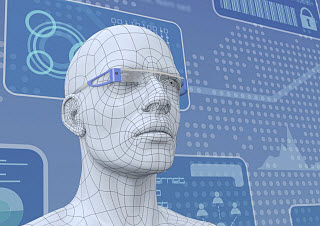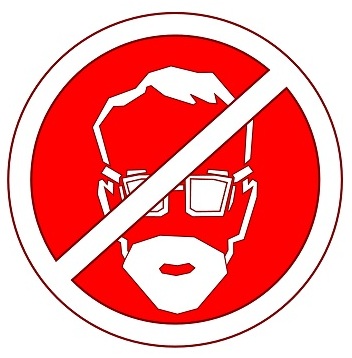Patent pictures hint at a new design concept for the wearable tech.
Although not everyone is on board with Google Glass, one aspect regarding this wearable device on which most people agree is the fact that it lacks aesthetic appeal and does very little for a person’s looks, but this minor issue may be rectified down the road based on the latest speculations regarding a recent acquired patent.
The new design appears to be sleeker and thicker compared to the current eyewear.
Mitchell Heinrich, Google design and prototyping engineer involved with Project Glass, was granted US patent D710,928 S on August 12. The patent shows a Google Glass design that looks far more like thick framed normal eyeglasses compared to the relatively bulky projector that sits on the side of the current device.
Heinrich’s involvement in the project is described on his website as “Early stage mechanical architecture layout. Lead the consumer packaging development for the explorer release. Developed human factors numerical and physical models to fit Glass on as many people as possible. Co-developed the bone conduction audio system including component design and testing. Broad range of low and high fidelity prototype development.”
 The patent application reveals relatively normal looking spectacles with a thick frame that features a display apparatus, which is tucked on the inside and is attached to the right arm of the glasses near the hinge. This would not only hide the projector, but make the wearable display device potentially more comfortable for the user, as they could receive information projected from the apparatus on the lenses instead of it floating in front of their eyes. This could also mean better image quality. On the other hand, this new design could end up being more obstructive to the wearer’s vision.
The patent application reveals relatively normal looking spectacles with a thick frame that features a display apparatus, which is tucked on the inside and is attached to the right arm of the glasses near the hinge. This would not only hide the projector, but make the wearable display device potentially more comfortable for the user, as they could receive information projected from the apparatus on the lenses instead of it floating in front of their eyes. This could also mean better image quality. On the other hand, this new design could end up being more obstructive to the wearer’s vision.
The new design may make people even more suspicious of Google Glass users.
Despite being more appealing to look at, this new design could raise more concerns among non-Glass users who may argue that it will make it easier for wearers to film others without these people being aware that they are being captured on film or that Glass users may find it easier to engage in other illicit activity. For instance, the smartglasses have already been banned at certain movie theaters in the US to prevent the illegal filming of movies.
Nevertheless, at the moment, the patent doesn’t reveal enough about the next-gen Google Glass for anything official to be determined. However, what has been seen certainly does appear to be a notable evolution in the product.

 Project Glass not likely to offer augmented reality at launch
Project Glass not likely to offer augmented reality at launch